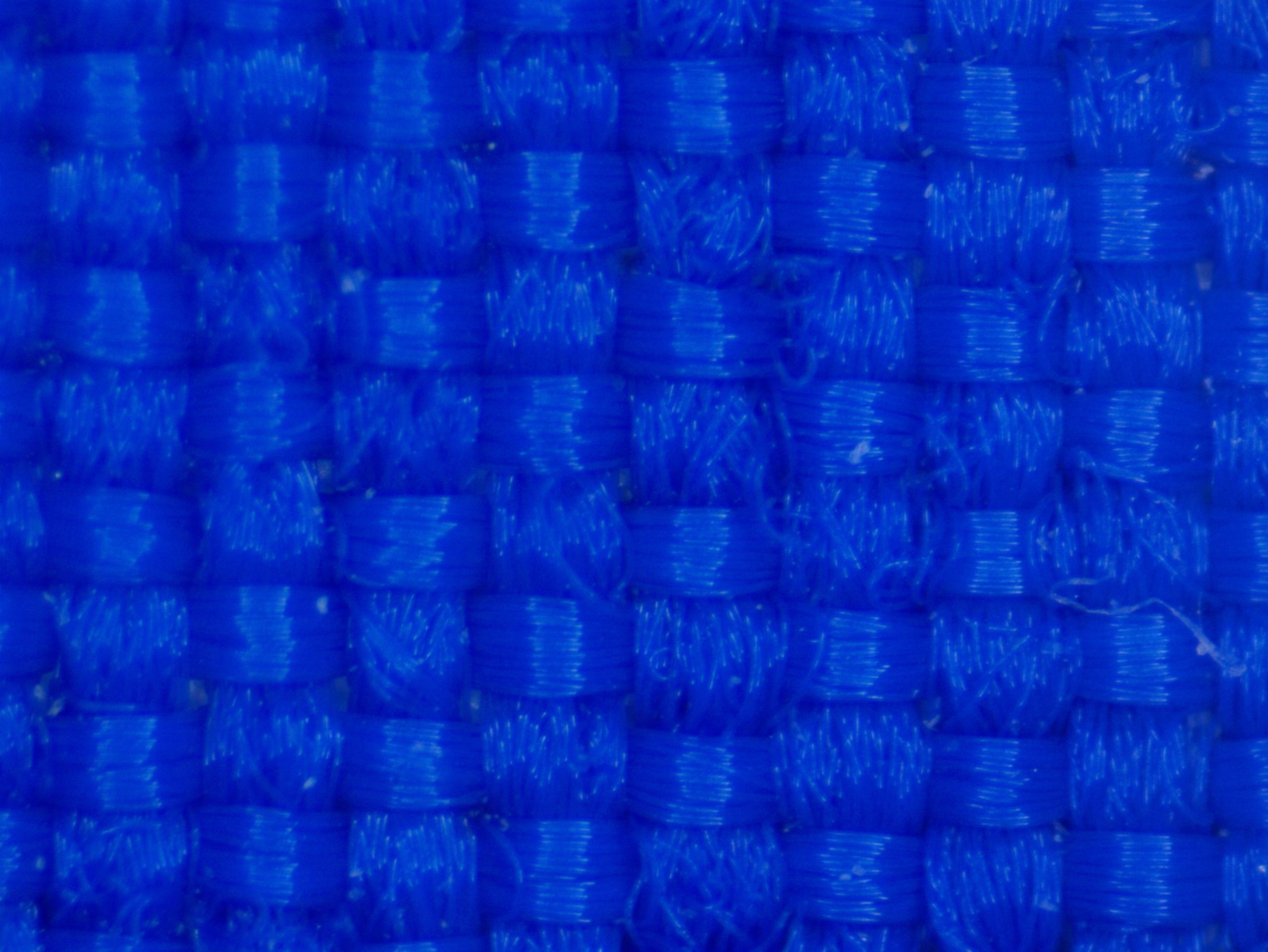Topic
By the Numbers: the Search for a High-MVTR Waterproof Breathable Shell Jacket
Forum Posting
A Membership is required to post in the forums. Login or become a member to post in the member forums!
Home › Forums › Campfire › Editor’s Roundtable › By the Numbers: the Search for a High-MVTR Waterproof Breathable Shell Jacket
- This topic has 111 replies, 28 voices, and was last updated 1 year ago by
 Jerry Adams.
Jerry Adams.
-
AuthorPosts
-
Nov 14, 2021 at 12:56 pm #3732194
Hi Stephen,
thank you for the answers. Do you think the liner have a role on the MVTR as well? Both the “anomalies” , the ascensionist and the norvan, make use of C-Knit.
Thank you very much again.
Nov 14, 2021 at 2:42 pm #3732216Hi Indrit:
Here is a photomicrograph of C knit in the Ascensionist. I happened to purchase one for resort skiing when they were on a very large price reduction.

You can see that C-Knit is a very open knit. I believe we are looking at the skin side of the membrane at the white areas. If you look at the shiny area indicated by the arrow, I think that is the adhesive that bonds the C-Knit to the membrane.
So, I think the answer to your question is that C-Knit should have little impact on MVTR.
Since I had this thing here, I thought I’d look at the face fabric. Here it is:

Kind of interesting face fabric. Look at the relatively large squares of white in the weave. You are looking at the face of the membrane. These gaps in the weave should help boost MVTR. So, it is unclear why the MVTR performance is not higher on this.
Nov 14, 2021 at 3:34 pm #3732218Look at the relatively large squares of white in the weave. You are looking at the face of the membrane.
Undoubtedly so, but I have questions.
It seems that there is some sort of coating across the outer face of the fabric: is this so? I could be confused of course.
If correct, then the number of visible white holes suggests that the coating is very poorly applied.Cheers
Nov 14, 2021 at 4:10 pm #3732224Let’s try a new image.

You are seeing reflection from the ring illuminator. I added backlight and turned the fabric a bit. Much better and you get a better look at how loose the weave is. I have to admit, the 1st image does look like a Nextec Epic coating.
Nov 14, 2021 at 4:41 pm #3732228Good lord. That is a really loose weave. A very weak fabric, totally dependent on the membrane. Not for me.
Cheers
Nov 14, 2021 at 5:46 pm #3732243Hi Roger: Have you looked at other Gore face fabrics like this? I have not. But, I now wish I had when I had all these jackets here. I have a few here. So, let’s compare:
Arcteryx Sabre 80 denier:

Noronna Lofoton Goretex. They don’t list denier. Pretty burley.

Montbell Versalite Windstopper 7D

Ascensionist at same mag as others. Original image 4.5, all now at 2

Now we have a better idea. Noronna and Ascensionist may not be that different in weave tightness. The other two you would expect the face fabric to produce a larger reduction in MVTR. Just a guess, don’t know for sure.
Just added Arcteryx and Noronna at 4.5 mag, same as original Ascentionist. Noronna is clearly lower denier. At this magnification, there is not enough backlight intensity to be seen, which is why I backed off to 2 mag.

 Nov 14, 2021 at 7:53 pm #3732273
Nov 14, 2021 at 7:53 pm #3732273The last two, yellow and blue, look OK. The weave is tight.
The problem with a tight weave is that making requires a heavier and stronger loom. That loom costs more.
Which I think explains a lot.As for HH: a different story. A sheet of builders plastic has an incredible HH – until it bursts. Reality is that it is extremely rare for a fabric to ever experience that sort of water pressure in the field. The tent, jacket or pack would burst.
So what one has to look for is endurance. Some of the older Gore fabrics had this, X-Pac has it, and some others do too. Chuckle: PVC-coated fabric found in yachting jackets also has it, but it is kinda heavy.
Bottom line: TANSTAAFL, despite the marketing claims (which generally are not worth the electrons they are printed on).
Cheers
PS: I like the Packa, and I made my own version.Nov 19, 2021 at 6:16 pm #3732767I can’t find it, but didn’t I read somewhere (Stephen rec?) that the OR Helium wind hoodie has excellent numbers (for a wind shirt, not rain)? Thanks.
Nov 19, 2021 at 6:26 pm #3732769Hi Steve: Here are my numbers on the OR Helium Wind hoodie: Air perm: 1.6 cfm/ft2, HH 405 mmwc. Good for light rain protection, for a limited period of time, 3360 MVTR. Excellent breathability.
Nov 19, 2021 at 7:10 pm #3732770Thank you very much Stephen. Those are impressive numbers. As strictly a wind shirt, which would you prefer: OR Helium Wind Hoodie or EE Copperfield? I understand the weight difference. Really appreciate it.
Nov 19, 2021 at 8:10 pm #3732773I have not tested the EE Copperfield. So, I can’t offer an opinion. Sorry.
Nov 21, 2021 at 9:40 am #3732838Thanks for the research data and work you do Stephen.
Nov 29, 2021 at 7:10 am #3733406Gore is now marketing the H5 Shakedry and R7 Trail Shakedry , as 30% thicker than “original” Shakedry, as suitable for backpacking. Of course, we don’t know what component of the laminate is thicker.
Still, it seems likely that there will be a reduction in MVTR. The question will be, how much.
Regardless, it would be interesting to see the tests for those, if Stephen can get his hands on one.
Nov 29, 2021 at 7:38 am #3733407I may very well be missing something (and hope that I am) but Gore appears to be saying it is a trail running jacket. I see no mention of suitability for use with a pack.
“Made for trail runners who need wet weather protection they can carry with them for long runs in the hills.”
Nov 29, 2021 at 9:42 am #3733419Tjaard, I believe Stephen has tested the H5 and found it’s MVTR only a little lower than the thinner versions of Shakedry.
Nov 29, 2021 at 12:55 pm #3733431I may very well be missing something (and hope that I am) but Gore appears to be saying it is a trail running jacket. I see no mention of suitability for use with a pack.
Under product highlights it says, “Suitable for use with a backpack.”
Nov 29, 2021 at 5:51 pm #3733477Not that is expensive.
Nov 29, 2021 at 7:04 pm #3733482Brella 2020 that has a 20,000mm/20,000MVT rating and sells for $99.
Those are very high figures for sure, but what does it weigh?
And the price: $99 per what? Roll, metre, squ foot?
And what is the width?Cheers
Dec 14, 2021 at 5:06 pm #3734803I used my RSBTR WPB fabric rain jacket in the rain
It rained a fair amount. I was wearing a synthetic vest underneath. The outside of the vest got somewhat wet. I don’t know if it was rain leaking through or condensation from sweat.
When I took the rain jacket off and sat in my tent for a while, it dried off pretty good.
I think I’ll use it in drier weather. When it wasn’t raining it worked fine, hiking.
Maybe I’ll have to make another rain jacket for wetter weather.
I like the low weight of the RSBTR WPB fabric. Jacket weighs 7 ounces vs 13 ounces for my previous jacket.
I see the Neoshell is $45 per yard. 2 yards to make a jacket. Pretty expensive. I wonder if it would really be that much better.
Feb 5, 2022 at 5:02 am #3739070I hope you will be able to research the effect of wet out one day on Shake dry-type, Paclite-type and standard type jackets. Because it’s not always a question of frequent washing or not as I often see and notice the difference DURING a trip (and even during one day): at the beginning breathability is OK but several days (or hours) later that jacket is completely (or partly) wetted out, breathability is reduced significantly and condensation occurs.
Feb 5, 2022 at 7:15 am #3739074Hi Woubeir. This is actually something I have been thinking about. Please clarify: Are you referring to wet out from the inside or wet out of the face fabric from rain? I am interested in the impact of wet out from rain.
Feb 5, 2022 at 12:03 pm #3739100Well, my experience is with my old Arc’teryc Sirrus SL (bought in 2004 or 2005 but still my main WPB). Of course, during a trip I’m unable to wash it.
I’ll take it out of my pack and starts to wear it only when it properly starts to rain. In the beginning it beads well but after a while it starts to wet out in places. Once that happens, condensation occurs (most notibly in the lower sleeves). So somehow the DWR fails and as a consequence the face fabric wets out.
To make things even more complicated: the jacket combines Paclite with a ripstop-weave face fabric (I think 40D) for most of the jacket with GTX XCR with a heavy plain-weave face fabric (I think 70D) (on the shoulders and the chest). Both wet out but the part with the plain weave doesn’t seem to suffer as much from condensation.
Feb 5, 2022 at 12:59 pm #3739106Hi Woubeir: What happens when you treat with Nikwax or similar?
I have some Arcteryx Gore pants that have gotten pretty contaminated over the years. No amount of scrubbing, washing and then treating with any number of DWR products will restore performance to those pants. I even had them professionally washed and treated at Boulder Mountain Repair, with no difference.
Are you using pit zips when this occurs to try to dump internal moisture? The MVTR of that jacket will be pretty mediocre. I expect when wet out occurs, unless you dump internal moisture through ventilation, the interior would be prone to condensation whenever dewpoint is achieved.
In any case, the impact of wet out on MVTR has been an ongoing debate and it would be interesting to look at. I would need a jacket where MVTR cannot be restored through retreatment for this test. It might be easier to take some Gore tex fabric and treat it to be hydrophilic. That would ensure wet out would occur. I will give it some thought.
Feb 5, 2022 at 2:16 pm #3739112Stephen,
about after market treatment: yes, often
about the use of pit zips: as much as weather permits
Feb 5, 2022 at 2:24 pm #3739113Woubeir: So the question is, might the fabric be worn, aged or contaminated so that DWR cannot be restored? How well does it work after you apply after market treatment? I wonder if the surface treatments from 2003 are compatible with today’s after market treatments?
-
AuthorPosts
- You must be logged in to reply to this topic.
Forum Posting
A Membership is required to post in the forums. Login or become a member to post in the member forums!
Our Community Posts are Moderated
Backpacking Light community posts are moderated and here to foster helpful and positive discussions about lightweight backpacking. Please be mindful of our values and boundaries and review our Community Guidelines prior to posting.
Get the Newsletter
Gear Research & Discovery Tools
- Browse our curated Gear Shop
- See the latest Gear Deals and Sales
- Our Recommendations
- Search for Gear on Sale with the Gear Finder
- Used Gear Swap
- Member Gear Reviews and BPL Gear Review Articles
- Browse by Gear Type or Brand.












